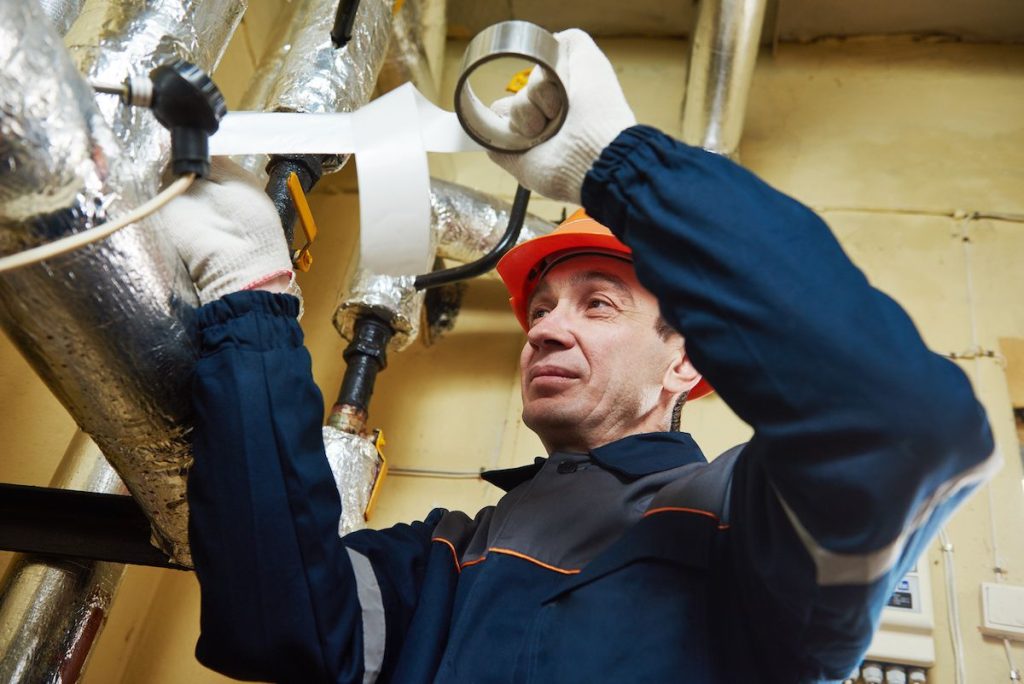
Water Restoration
In this article:
- Winterizing your home is essential for several reasons
- A Snowbird’s Checklist for Winterizing Your Vacant Home Before You Fly South
- Contact Your Local PuroClean for Property Damage Restoration
Many New Englanders either embrace the snowbird lifestyle, know someone who does, or aspire to one day join the ranks of those who migrate south during the winter. Becoming a snowbird offers the opportunity to enjoy a more comfortable and pleasurable living environment when the harsh winter months descend upon the region, allowing individuals to relish their retirement and leisure time to the fullest.
In New Hampshire, where winter storms can bring power outages, it’s crucial to protect your vacant home not only from freezing temperatures but also from potential property damage. In 2021 and 2022, Puroclean in Nottingham NH reported a significant increase in property damage caused by winter storms and received hundreds of emergency calls for frozen and burst pipes. If you’re planning to be away for an extended period this winter, there are steps you can take to winterize your home and travel with peace of mind.
Winterizing your home is essential for several reasons:
- Prevent Frozen Pipes: Freezing temperatures can cause water in your pipes to freeze, expand, and burst, leading to costly water damage and repairs.
- Energy Efficiency: Proper winterization can improve energy efficiency, reducing heating costs and helping you save on energy bills.
- Protect Appliances: Shutting off and draining the water heater and other appliances can extend their lifespan and prevent damage.
- Home Preservation: Winterization helps protect your home’s structure and materials, such as preventing drafts, insulation damage, and roof issues.
- Avoid Costly Repairs: By taking these precautions, you can avoid the need for expensive repairs due to winter-related damage.
- Insurance Requirements: Some insurance policies may require winterizing your home during extended vacancies to maintain coverage.
- Peace of Mind: Knowing your home is prepared for winter can provide peace of mind while you’re away, reducing worries about potential issues.

Taking these proactive steps to safeguard your property, belongings, and financial well-being during the colder months is essential. As long as you follow these steps, you can be confident that your home will be safe while you stay warm down South or away for an extended period of time.
A Snowbird’s Checklist for Winterizing Your Vacant Home Before You Fly South
Follow our checklist to ensure your home is well-prepared to weather the elements, preventing the devastating consequences of power outages, burst pipes, and other winter-related issues.
- Shut Off The Water: The most significant problem for homeowners who don’t winterize their vacant homes is frozen and burst pipes. Before leaving home, the first step is to shut off the water. For most modern homes, this is as easy as turning off the main valve. If your home’s water supply comes from a well, also shut off the breaker to the pump system.
- Shut Off The Water Heater: Once the water is off, it’s time to shut off and drain the water heater. If you have a gas water heater, simply turn the controls to the “Off” position and shut off the gas valve. For electric heaters, turn it off at the breaker. Afterward, drain the water by opening a faucet or spigot.
- Drain All Supply Lines: Ensure all pipes, sinks, and faucets are drained of water by turning on the faucets after shutting off the main water. If your house relies on a well, don’t forget to drain the pressure tank as well. Your pipes should be completely empty before you leave your house. Use an air compressor to blow out your pipes to ensure they are entirely drained.
- Use Antifreeze to Prevent Frozen Toilets: Once your pipes are entirely drained, flush your toilet until no water remains. Fill it with antifreeze, preferably a non-toxic RV solution.
- Turn Off Electrical and Heating Systems: Most electrical systems won’t be needed during the winter with nobody at home. Heating systems should be turned off as well, as furnaces can collect condensation and may be affected by freezing. After shutting off your heating system, inspect it to ensure it is completely dry.
- Leave a Notice: Inform your property caretaker, neighbors, or anyone responsible for your home while you’re away. Provide them with PuroClean’s contact information for emergency response in case of property emergencies: (603) 664-3727 for 24/7 assistance. Please note that during high-volume times, such as severe winter storms, response times may be delayed until a power source is available.

Contact Your Local PuroClean for Property Damage Restoration
If you experience any property damage due to the winter weather or a winter storm blackout, contact your local PuroClean office. Our technicians are trained and certified to handle emergencies such as frozen pipes, flooded basements, water damage, and fire damage. We have the experience and the latest technology to restore your home or business quickly and effectively.
For quick emergency response during winter storms, you can contact PuroClean today. Our team is here to help you get back on track as soon as possible, so call us at (603) 664-3727. Please note that during high-volume times, such as severe winter storms, response times may be delayed until a power source is available. Please call and ask about our response team wait time to get ahead of the damage that may follow.



 PuroClean of Strafford County
PuroClean of Strafford County